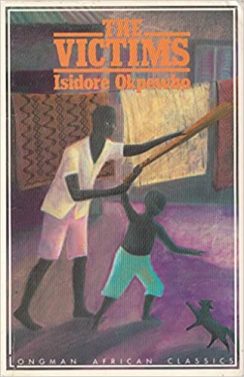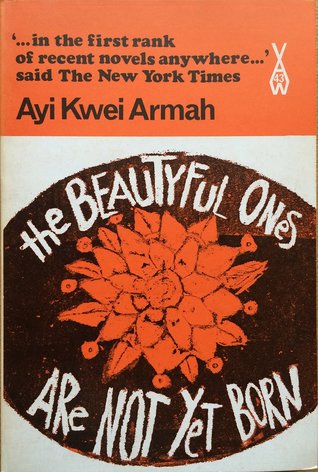In this edition of “Beyond the Cover,” we will examine the themes in the novel “Allah n’est pas obligé (Allah Is Not Obliged)”, by renowned Ivorian writer Ahmadou Kourouma.
Allah n’est pas obligé (Allah Is Not Obliged), published in 2000, is one of Ahmadou Kourouma’s most impactful novels, bringing the tragic realities of child soldiers and civil wars in West Africa into sharp, unflinching focus. This harrowing and brutally honest narrative exposes the complexities of war, the innocence lost, and the moral ambiguity that children, often the most vulnerable victims, face in these conflict-ridden regions.
The story is told through the eyes of Birahima, a ten-year-old orphaned boy who is forced into the life of a child soldier. His journey takes him through war-torn Liberia and Sierra Leone, under the command of various warlords. Through Birahima’s voice, Kourouma offers a powerful account of the everyday horrors of war: the violence, the exploitation, and the sheer absurdity of life under constant threat.
Child Soldiers and War
The novel’s central theme is the recruitment and exploitation of child soldiers in African civil wars. Kourouma explores how children, stripped of their innocence, are indoctrinated into violence. Birahima’s nonchalant tone, combined with his crude and humorous observations, underscores the grotesque normalization of brutality. Through his perspective, readers see how children, robbed of their childhoods, are forced to participate in atrocities that they cannot fully understand. Birahima’s casual recounting of beheadings, executions, and acts of violence emphasizes the desensitization of these children to the horrors they are forced to commit.
Morality and Religion
A striking aspect of Allah n’est pas obligé is its exploration of the fluid boundaries of morality in war. Birahima frequently uses the phrase “Allah is not obliged to be fair about all the things he does here on earth,” which becomes a refrain throughout the novel. This reflects the existential questioning of how justice, morality, and faith operate in a world where children become soldiers and life is marked by senseless violence. Kourouma portrays a world where religious and moral codes seem to break down under the weight of conflict, forcing characters to navigate an existence where survival often overrides ethical considerations.
Absurdity and Satire
While the novel’s subject matter is deeply tragic, Kourouma employs a biting satirical style to convey the absurdity of the situations Birahima encounters. Through the boy’s innocent yet sharp commentary, Kourouma exposes the irrationality of warlords, the contradictions in the behavior of adults, and the farcical nature of war’s politics. Birahima’s often detached and irreverent narrative voice allows readers to confront the shocking realities of war without becoming entirely overwhelmed, creating a jarring but powerful juxtaposition between humor and horror.
Power and Corruption
The novel also examines the theme of power—both in its political form and in the microcosm of warlord rule. Warlords, commanders, and political leaders are depicted as corrupt, driven by personal gain rather than any ideological or humanitarian concerns. Birahima’s cynical understanding of these figures reflects the failure of leadership and governance in these war zones, where power is often gained and maintained through violence and manipulation rather than through justice or responsibility.
Allah n’est pas obligé is a remarkable and gut-wrenching novel that forces readers to confront the darkest aspects of human conflict through the innocent yet scarred eyes of a child. Kourouma balances tragedy, satire, and linguistic innovation to present a complex, multi-layered critique of war, power, and morality. The novel serves as both a historical reflection on the civil wars of West Africa and a broader commentary on the breakdown of societal values in the face of chaos and violence.
This book is available in French and English languages. Will you be reading a copy soon?



